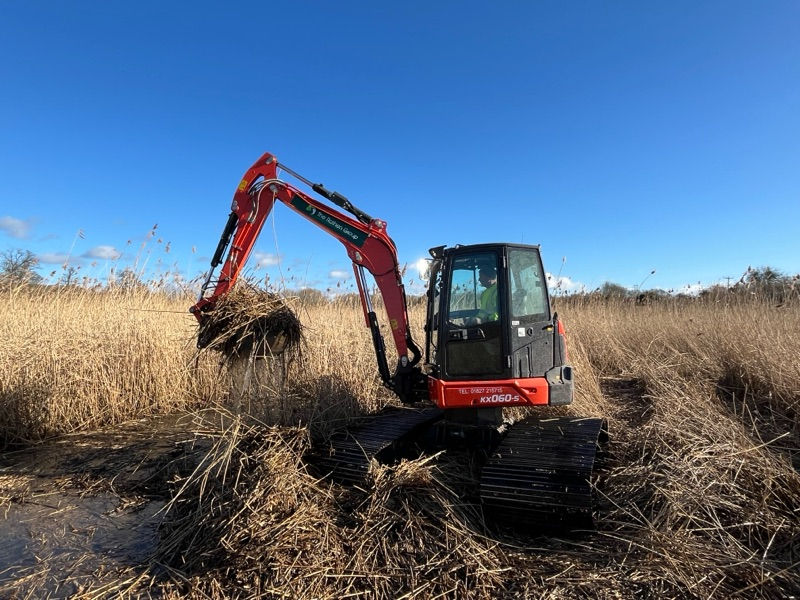
Weir booms & trash screens
Floating barriers that manage flow, contain pollution, and protect people. We install river booms and trash screens for safety, pollution control, and debris management.
Access and Utilities Services
Our Specialist River Booms and Trash Screens Services
River booms and trash screens protect people, infrastructure, and the environment along our nation’s waterways and marine areas. The Rothen Group works nationwide to supply, install, and maintain a wide range of floating boom systems across canals, rivers, and industrial waterways.
We install safety booms to block access to hazards like weirs, environmental booms to contain debris, pollutants, and invasive species, and security booms to protect sensitive or high-risk sites such as ports and power stations.
Using our own floating plant, we transport booms into place and anchor them securely, even in challenging locations. We also carry out trash screen maintenance and boom clearing, ensuring your system keeps working efficiently in the face of high flow, seasonal debris, or persistent build-up.
Need help with boom installation or debris control? Get in touch to book a free consultation and site assessment.


Gallery

FEATURED CASE STUDY
Habitat Creation Coney Meadows, Droitwich
Coney Meadows is part of a nationwide project to restore the UK’s wetlands. Since the 17th century, large areas of reedbeds have been stripped and converted into agricultural land, massively reducing the number of habitats available for wetland animals.

FEATURED CASE STUDY
Changing the Shape of the River Derwent, Derby
Following the storm seasons of 2023 & 2024, the EA set out to review its impact on the UK’s waterways. The River Derwent in Derby was flagged after a sonar scan of its navigation identified a scour hole – a direct result of heavy rainfall pushing sediment downstream.
A river boom is a floating barrier installed across a waterway to control movement — whether it’s to stop boats from reaching a weir (safety boom), contain pollutants (pollution control boom), or prevent the spread of debris and invasive species (environmental boom).
They’re an affordable solution to riparian traffic, functioning similarly to a fence or traffic cones on land. The distinct orange colour helps people see visually where they can and can’t go.
What is a river boom used for?
We install safety booms, debris booms, environmental booms, and security booms. Each is built for a different purpose — from stopping boats at dangerous structures to floating boom barriers that contain litter or protect industrial sites.
Security booms, for example, are common in commercial ports, power stations, and other critical sites. Most canals and waterways require safety booms to cordon off certain sections of the river, e.g., a weir.
What types of booms do you install?
A trash screen is a static barrier — often a fixed grate or mesh — placed at the entrance to culverts, outfalls, or intakes to stop debris from entering. A floating boom, by contrast, moves with the water and blocks or redirects debris along the surface.
In England and Wales, the rivers are in a poor state of repair. Only 13% of rivers in England meet clean water standards. Trash screens are a crucial line of defence against surface debris, plastics, and pollution in our waterways.
Trash screens are a simple, effective, and affordable way to combat environmental pollution, safeguarding our environment for future generations.
What is a trash screen, and how is it different from a boom?
Yes. Our team uses floating plant to carry out river boom installation even in challenging or restricted areas. We also install ground anchors and manage the full setup on site.
In fact, installing a river boom in remote locations is crucial. If a person were to mistakenly enter somewhere they shouldn’t, a rescue operation might take much longer, increasing the risk of a loss of life.
Do you offer river boom installation in remote locations?
Absolutely. We offer river boom cleaning services and trash screen maintenance, especially in locations prone to seasonal build-up or high-flow debris. Regular clearing keeps systems functional and prevents blockages.
Can you clear and maintain trash screens and booms?
With regular maintenance, most floating debris booms and trash screens can last 10–15 years or more. We select materials based on flow rate, exposure, and environmental conditions to ensure long-term performance with minimal upkeep.
Most river booms and trash screens are relatively affordable. Trash screens, made from steel or other metals, usually last longer than booms, which are continually exposed to water and the sun.
How long do river booms and trash screens last?
FAQ
Your Questions Answered
contract services
Related services
about us
A decade of
The Rothen Group
The Rothen Group is a leading provider of waterway safety and infrastructure solutions across the UK. From floating boom installation to trash screen maintenance, we support navigation authorities, industrial sites, and public bodies in keeping rivers and canals safe, clean, and operational.
Our team brings decades of experience working in live water environments, often using floating plant to install and maintain equipment in hard-to-reach areas. Whether you need to protect the public, control pollution, or manage debris flow, we deliver practical systems built to perform.















